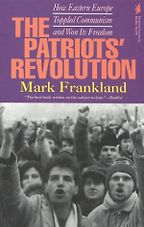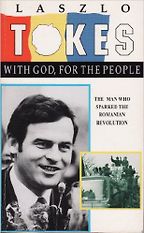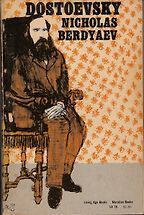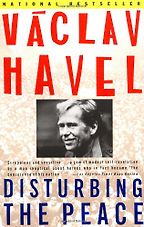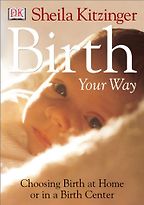Your first book is Mark Frankland’s The Patriots’ Revolution.
This was one of the first books on 1989 and was published soon after the revolutions, in 1992. As you can see from the title, Frankland’s point is that, whatever else they were, these were patriotic revolutions. The mistake of some journalists both then and now is to portray the revolutions as a simple victory of capitalism over communism.
Economic freedom, the desire for goods that had been unavailable, was part of it, but only a part of what patriotism and democracy would bring. What Frankland looks at is what brings people out of their lethargy, out of their armchairs and on to the street. What he does very well is to explain how important patriotism was, not nationalism but patriotism, and how pride in one’s own country, in one’s own identity was central to the motivation of these revolutions.
People in Eastern and Central Europe were rather well read about the history of their own nations. Although Communism stressed internationalism, the authorities didn’t dare to take down the monuments to the revolutionaries of 1848 [when liberal protesters rose up against the conservative establishment across Europe] and during the Hungarian Revolution in 1956, a spontaneous revolt against Stalinism, people walked from statue to statue in remembrance of previous revolutionaries. They walked the same route in 1989.
Frankland writes beautifully and is the kind of journalist who visits museums, talks to elderly historians and really explains what motivates people. If there had been more understanding of the patriotic element of 1989, I think more could have been done to prevent the disaster of Yugoslavia. One Croatian friend said to me in 1991: “We want to import Europe to Yugoslavia, but if you don’t let us then we’ll export Yugoslavia to Europe.” And in terms of the huge cost of NATO and UN operations and so on, that’s what happened.
Your next book is the autobiography of Pastor Tokes.
This is a small volume, written in the aftermath of 1989. Pastor Tokes was an ethnic Hungarian priest in Timisoara, and he describes here the experience of being a lone dissenting voice in Ceausescu’s Romania. They didn’t dare kill him, as they had other priests and dissenters, but he was actually sent to Timisoara to be kept under the watchful eye of a pro-regime priest who wouldn’t delegate any duties to Tokes and eventually died of overwork. Then suddenly he was told by the secret police that he was going to be expelled from his parish and from his home the following Friday. Tokes says he asked his congregation to be there and peacefully witness his expulsion, in the early Christian tradition of bearing witness. In fact, Tokes got worried when he saw them and asked them to go home. It now seems so inevitable – how could the Communist regime have survived? But people discovered then how brittle the regime in fact was. It was like a windscreen that can be shattered by one small stone, and that stone was Pastor Tokes.
“Pastor Tokes was the spark that lit the fuse that turned into a bloody revolution with over 1,000 dead, including, of course, Ceausescu himself.”
I arrived ten days later for the BBC and I interviewed the people who had been there, the ethnic Hungarian members of the congregation and the Romanians who had joined them. At first the congregation, who had come holding candles, were suspicious of the Romanians, assuming they were agent provocateurs. But the Romanians had just had enough and had come to support the priest. They ended up marching on the Party Headquarters and smashing the windows. Pastor Tokes was the spark that lit the fuse that turned into a bloody revolution with over 1,000 dead, including, of course, Ceausescu himself.
There is a tendency to think that these revolutions were conspiracies led by a few dissidents or the military, but I have always maintained that they were genuine uprisings. Perhaps in Romania the uprising got hijacked, but these began as genuine revolutions led by the people.
Next you’ve chosen Dostoevsky by Nicholas Berdyaev.
The reason I like this so much is that it lays bare the thinking of two great Russians. Berdyaev fled the Revolution in 1921 having initially welcomed it as an expression of human freedom, much like the 1989 revolutions. But when he realised the oppressive nature of the new regime, he couldn’t tolerate it any more than it could tolerate him as an apostle of freedom.
I have always found Dostoevsky so Russian, so dense and overwhelming. You need to suspend your own life almost to read him. He’s sometimes too Russian, and I feel almost as though I haven’t got time for him because I’m trying to lead my own life. So, Berdyaev helps me into Dostoevsky. He sees Dostoevsky as a fellow spirit dealing with the dilemmas of human freedom and the sacrifices people are willing to make for freedom. This relates to my experience of 1989.
I met a man in Timisoara who told me that his 13-year-old daughter had asked him why they weren’t out there on the streets. He said: “What would happen to you children if we were killed?” And she replied: “Don’t the people on the streets have children too?” And I spoke to a man whose four-year-old son had his leg in plaster when he took him out to demonstrate, thinking the protest would be peaceful. He pinned a notice to the boy’s back saying: “We want to live too.” The boy looked at him and said: “Do we have to die? Do they shoot children?”
This puts the revolutions in perspective as more than a rush for jeans and fridges. Berdyaev quotes Dostoevsky’s Notes From The Underground, saying: “Man’s whole business is to prove to himself that he is a man and not a cogwheel.”
Berdyaev and Dostoevsky focus on the freedom we have to choose between good and evil, and this makes the book relevant not only to 1989 but to today as well, because, since the fall of the Berlin Wall, there has been a reluctance among people in general, both “underground” and “overground” to accept the burden of responsibility that comes with freedom. The sense of responsibility towards one another and any sense of the state belonging to them.
They see the state treating them unfairly, as indeed it often does, so they withhold their blessing from it. And that undermines its legitimacy. It is as if it is too strong, and too weak at the same time. And there is an absence of a new social contract between the rulers and the ruled.
This is a slim volume but it speaks volumes about the 20th century and the beginning of this one. Even this autumn, looking ahead to the Copenhagen summit and the incredible damage man has done to the world – there is this sense in both capitalism and communism of man playing God. Dostoevsky wrote about man’s deification of himself and his lack of humility towards his fellow man and nature, and that remains relevant to our times.
And now a collection of Vaclav Havel’s essays.
I like everything by Havel so perhaps this is an odd collection to choose. It first came out in samizdat, illegally, in 1986. I have met and interviewed Havel several times. I even lent him my sleeping bag once, just after he’d become president, when we were on a camping trip together in South Bohemia. In the final one of these five essays, “The Politics of Hope”, you get an amazing sense of the determination of the signatories of Charter 77, in what was one of the most oppressive regimes in Eastern Europe, and their ability to cling so stubbornly to the idea of a society they believed should one day exist.
He quotes the Czech philosopher Vaclav Belohradsky saying that “We must not let ourselves be corralled into histories written by the victors” – at a time when dissident intellectuals felt pushed aside, defeated. Havel writes that the intellectual should be the “chief doubter of systems, of power and its incantations, should be a witness to their mendacity.”
His writing is often pessimistic and he was asked in the same volume if there was an inconsistency between the pessimism of his plays and his political life. He said the role of the playwright was not to soothe the spectator but “to propel him … into the depths of the question he should not and cannot avoid asking; to stick his nose into his own misery, into my misery, into our common misery, by way of reminding him that the time has come to do something about it.”
Havel’s humour comes across in these essays and he was always gently poking fun at the authorities. Humour was one of the most important tools in the toolbox of the 1989 revolutions. For the Czechs, they were lucky to have Havel to articulate the process, the energy of the people on the streets. Of course, he was someone who had been thinking about this for so long.
And now you’ve got Sheila Kitzinger’s Birth Your Way.
Yes. This might seem an unusual choice, but I use a quote from this book as the introduction to a chapter of my own book on 1989, and the years since then. It’s about pain. “Home birth works best for women who want to cope with pain, rather than hand the pain over to be reduced or eradicated by professionals.” She talks about the progression of labour and the experience of “pain with a purpose – positive pain.”
There are two ways in which this is important. Firstly, maternity care in Eastern Europe has been pretty awful and in many places still is pretty awful. It is doctor-led and under Communism midwives were almost abolished. The doctors received the fat envelopes of “gratitude money” often paid before the birth. Instead of the mother being at the centre of the experience, it’s the doctor. We did a study on the day of the week babies were born and we found that there were many more born on Fridays or on the days before national holidays, the times that the doctors didn’t want to be there. So they were inducing the births with all the pain and complication that can cause, to fit into their own or the hospital’s schedules.
Get the weekly Five Books newsletter
Sheila Kitzinger really lays it out and should be translated into all the languages of the region – Serbian, Russian, Romanian, Slovak – I think one of her books is already in Hungarian. Power needs to be given to the parents. Obviously birth can be dangerous but it doesn’t usually need to be treated as a medical emergency. There has been the complete absence in Eastern Europe of the understanding of birth as a psychological experience that will affect mother and child for the rest of their lives.
Birth and pain are also useful as analogies for what happened in 1989 and the sense of empowerment that was suddenly felt. 1989 was a good birth when people felt they had power over their own bodies in the most vulnerable and most powerful moment of their lives. The baby of democracy was born healthy and red and screaming. But people lost that sense of their own power, of their own self-confidence, and, although there has been no return to the authoritarian regimes (except in Russia), the political parties now share the space that a single party once occupied.
Get the weekly Five Books newsletter
There is a jungle of democracy now, with a powerful ruling class, a political elite, politicians working closely with big business. Some of the multinationals in Central and Eastern Europe don’t even allow trade unions in the workplace and people risk losing their jobs for joining trade unions. This kind of thing wouldn’t be possible in the home countries of the multinationals and, in the crisis, it has been easy to sack tens of thousands of people. There is very little job security and that sense of stress has been the downside of democracy. Job insecurity is the biggest failure of the new democracies or the biggest failure of the people, not to have organised themselves to protect their rights.
There has been a real reluctance of this now 20-year-old child to grow up. The Central European countries have joined the EU but they see it as “us and them” and they often sit and wait for Brussels to do something for them rather than, in the case of small farmers, for example, getting a lobby group together from different countries, to actually change things from the inside as adult participants. There is still a feeling of people looking up towards authority, waiting to be rescued.
Five Books aims to keep its book recommendations and interviews up to date. If you are the interviewee and would like to update your choice of books (or even just what you say about them) please email us at [email protected]
Five Books interviews are expensive to produce. If you've enjoyed this interview, please support us by donating a small amount.
